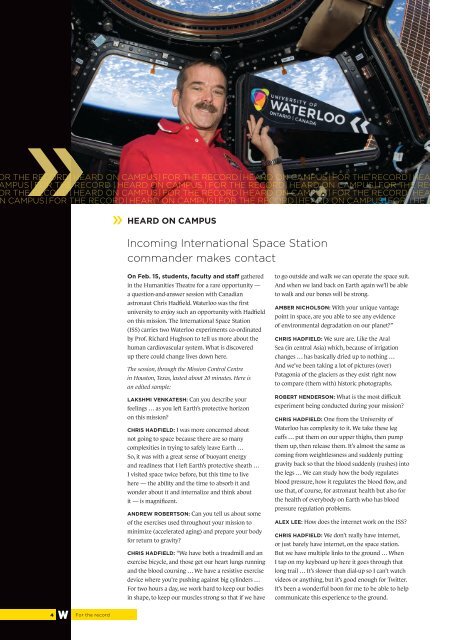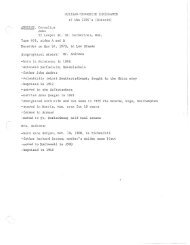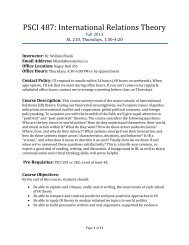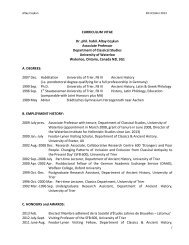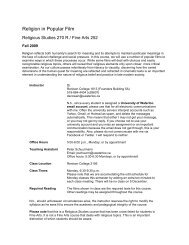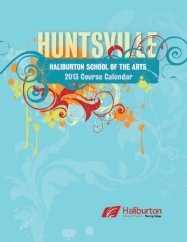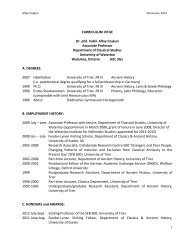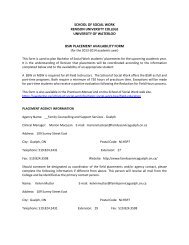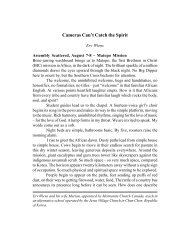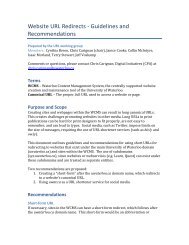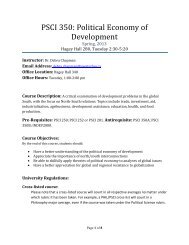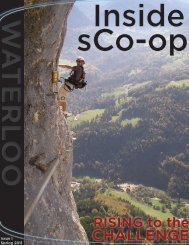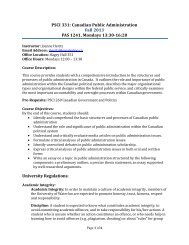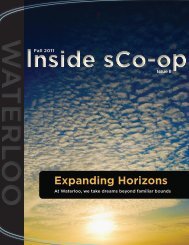uNivErSity oF WAtErloo MAgAZiNE
uNivErSity oF WAtErloo MAgAZiNE
uNivErSity oF WAtErloo MAgAZiNE
Create successful ePaper yourself
Turn your PDF publications into a flip-book with our unique Google optimized e-Paper software.
tHe reCorD | HearD on Campus | for tHe reCorD | HearD on Campus | for tHe reCorD | HearD<br />
mpus | for tHe reCorD | HearD on Campus | for tHe reCorD | HearD on Campus | for tHe reCo<br />
r tHe reCorD | HearD on Campus | for tHe reCorD | HearD on Campus | for tHe reCorD | HearD<br />
Campus | for tHe reCorD | HearD on Campus | for tHe reCorD | HearD on Campus | for tHe reC<br />
heard on campus<br />
incoming international space station<br />
commander makes contact<br />
on feb. 15, students, faculty and staff gathered<br />
in the Humanities Theatre for a rare opportunity —<br />
a question-and-answer session with Canadian<br />
astronaut Chris Hadfield. Waterloo was the first<br />
university to enjoy such an opportunity with Hadfield<br />
on this mission. The International Space Station<br />
(ISS) carries two Waterloo experiments co-ordinated<br />
by Prof. Richard Hughson to tell us more about the<br />
human cardiovascular system. What is discovered<br />
up there could change lives down here.<br />
The session, through the Mission Control Centre<br />
in Houston, Texas, lasted about 20 minutes. Here is<br />
an edited sample:<br />
lakshmi venkatesh: Can you describe your<br />
feelings … as you left Earth’s protective horizon<br />
on this mission?<br />
chris hadfield: I was more concerned about<br />
not going to space because there are so many<br />
complexities in trying to safely leave Earth …<br />
So, it was with a great sense of buoyant energy<br />
and readiness that I left Earth’s protective sheath …<br />
I visited space twice before, but this time to live<br />
here — the ability and the time to absorb it and<br />
wonder about it and internalize and think about<br />
it — is magnificent.<br />
andrew roBertson: Can you tell us about some<br />
of the exercises used throughout your mission to<br />
minimize (accelerated aging) and prepare your body<br />
for return to gravity?<br />
chris hadfield: “We have both a treadmill and an<br />
exercise bicycle, and those get our heart lungs running<br />
and the blood coursing … We have a resistive exercise<br />
device where you’re pushing against big cylinders …<br />
For two hours a day, we work hard to keep our bodies<br />
in shape, to keep our muscles strong so that if we have<br />
to go outside and walk we can operate the space suit.<br />
And when we land back on Earth again we’ll be able<br />
to walk and our bones will be strong.<br />
amBer nicholson: With your unique vantage<br />
point in space, are you able to see any evidence<br />
of environmental degradation on our planet?”<br />
chris hadfield: We sure are. Like the Aral<br />
Sea (in central Asia) which, because of irrigation<br />
changes … has basically dried up to nothing …<br />
And we’ve been taking a lot of pictures (over)<br />
Patagonia of the glaciers as they exist right now<br />
to compare (them with) historic photographs.<br />
roBert henderson: What is the most difficult<br />
experiment being conducted during your mission?<br />
chris hadfield: One from the University of<br />
Waterloo has complexity to it. We take these leg<br />
cuffs … put them on our upper thighs, then pump<br />
them up, then release them. It’s almost the same as<br />
coming from weightlessness and suddenly putting<br />
gravity back so that the blood suddenly (rushes) into<br />
the legs … We can study how the body regulates<br />
blood pressure, how it regulates the blood flow, and<br />
use that, of course, for astronaut health but also for<br />
the health of everybody on Earth who has blood<br />
pressure regulation problems.<br />
aleX lee: How does the internet work on the ISS?<br />
chris hadfield: We don’t really have internet,<br />
or just barely have internet, on the space station.<br />
But we have multiple links to the ground … When<br />
I tap on my keyboard up here it goes through that<br />
long trail … It’s slower than dial-up so I can’t watch<br />
videos or anything, but it’s good enough for Twitter.<br />
It’s been a wonderful boon for me to be able to help<br />
communicate this experience to the ground.<br />
4<br />
For the record


